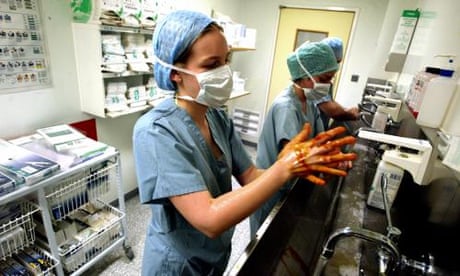Even Scrooge would marvel at Queen Mary’s pay-docking over a marking boycott. No wonder higher education is in turmoil writes Aditya Chakrabortty in The Guardian
In this season of quizzing, here’s a real head-scratcher. Can you name the big British employer that punished staff for boycotting a small fraction of their work by taking all of their pay for each day of their boycott? So that even while employees did their other tasks, putting in weeks of work, their pay packets were pilfered, month after month, from high summer until almost the start of advent. Some had to take extra jobs, others drew on hardship funds or stuck essential bills on credit cards. Amid a cost of living crisis and with Christmas looming, the Great Wage Robbery carried on. But who was responsible?
Perhaps your imagination has entered some grim distribution hangar, or is hovering above a building site. Or maybe you’re thinking of a care home bullying its migrant workers who are fuzzy on their rights and scared of speaking up. You’re seeing ruthless, rapacious big-C Capital opening its giant, bloody maw wide to chew on some low-paid and underqualified labour. Right?
Wrong. Try a charity. To be precise, that branch of charitable enterprise we call a Russell Group university. This is the story of Queen Mary University of London, whose boss, Colin Bailey, is on a package worth £359,000 a year (plus free housing in inner London) , but which bilks its own academics as brazenly as Scrooge did his clerks. If you want a closeup of the turmoil engulfing higher education, or to see how some of our most prestigious white-collar jobs have been so vastly degraded, this is a story for you. Because even Ebenezer would have marvelled at the goings-on at Queen Mary.
This spring, its academics joined a national union boycott of marking exams to protest against the low pay awards that have seen university lecturers’ salaries fall 25% behind inflation since the banking crash, and their deteriorating working conditions. By downing their red pens, tutors were hitting universities where it hurt most – since they rely on student fees. But they kept up the other parts of the academic job: guiding students, doing research and writing papers. That did not pacify the bosses, who decreed that those withholding their marks would lose up to 113 days of pay – one for each day of their boycott.
A similar standoff took place last year, when staff received payslips with a net payment of £0.00. So as not to repeat that furore, the university instead deducted about 21 days from each month’s paycheck. In July, it confiscated almost £176,000 from 82 staff – on average more than £2,000 each.
Even after the University and College Union (UCU) called off the boycott in September and the academics scrambled to give students their marks, their pay kept on getting docked for days they had boycotted. For some, December is their first month on full pay since the start of summer.
What’s it like to open your payslip and find two-thirds of it has disappeared? Even as staff told me, many worried about reprisals from managers. So here is an anonymised sample of their stories:
A woman whose manager knew she was three months pregnant was told at the end of June that her very next paycheck would be docked. The pregnancy was already judged high risk, and she had to support her 4-year-old child and husband. In July, she duly lost £2,147.
A man had to take a second job to ensure he could pay his mortgage and his child’s nursery at Queen Mary. He paid his own employer nursery fees, despite it withholding pay for him.
To look after his sick mum and elderly dad, another man worked a second job.
A woman relied on her friends letting her stay with them for months. If she had had to pay rent on her reduced salary, she said, “I simply could not have managed.”
These are senior lecturers, responsible for teaching the next generation of teachers, lawyers and doctors while doing research that will help all of us. And they have been treated like dirt.
Listening to all this, I kept hearing another voice – the clipped, precise tones of BBC Radio 4’s Justin Webb. As he and his fellow Today presenters have had to interview medics, barristers and professors about exactly why they’re on a chilly picket line, there is a distinct puzzlement audible in their questions. Disgruntled factory workers they can understand, but aren’t these meant to be the good jobs?
That’s what those academics also believed, once. Two of the stories you’ve just read came from people who were the first in their family to go to university. They studied hard and overworked, and they lived out the Blairite boast that “we’re all middle class now” – only to find that middle-class jobs are not what they were. They have become more routine, more spied upon (Queen Mary managers encouraged students to submit reports, inevitably nicknamed “snitch forms” , on their own teachers) and relatively worse paid. Yet the facade of tweedy collegiality never drops. As staff log in to the university that took their pay, they are reminded that Queen Mary is “committed to improving social justice”.
Other universities deducted pay for marking boycotts. At Aberdeen, the principal said he wanted to inflict “pain” on dissenting lecturers. But few administrations have been as punitive as Queen Mary’s. Other universities may claim to be in budgetary crisis, from Oxford Brookes to Sheffield Hallam. Not Queen Mary, which is sitting on an annual surplus of £92m. Even so, its boss still threatened a degree programmewith closure after its staff stuck up for their rights. No wonder last year it was crowned “worst university employer in the UK”. In surveys, academics frequently pick out their own bosses as the worst aspect of the entire college. “Senior management does not listen to staff and does not even attempt to show that it is doing so,” is one typical example.
I put these allegations in detail to Queen Mary’s principal and to members of its governing council, along with other questions to get their perspective. Rather than answer directly, the press office issued a short statement that read in part: “We do not withhold pay from staff so long as they deliver all their educational activities. Teaching and assessment are priority contractual activities for university staff, and we withhold pay for staff who do not carry out these core activities due to industrial action.”
You help to pay for this regime. Because charities are meant to serve a benefit to the public and work to higher ends, they are not liable for the same taxes as other businesses. Universities are not overseen by the Charity Commission but by the Office for Students, which has no expertise in charitable regulation. If they did, harder questions might be asked about what is happening inside today’s degree factories.
In the meantime, Queen Mary’s status as a charity means it charges no VAT on its fees or halls of residence and pays no corporation tax on its surplus. A conservative estimate from the local University and College Union puts this public subsidy as worth more than £100m a year.
“Out upon merry Christmas!” grumps Scrooge. “If I could work my will every idiot who goes about with ‘Merry Christmas’ on his lips, should be boiled with his own pudding, and buried with a stake of holly through his heart. He should!” Someone should nominate Ebenezer to run a British university.





